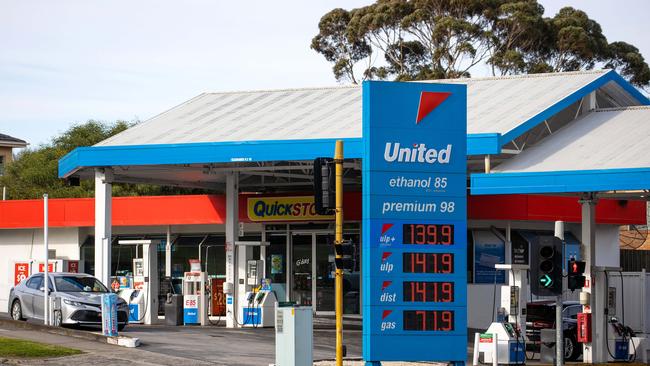Inflation hits highest level since 2008
Australians felt the impact of big rises in grocery and petrol costs in the June quarter, but economists say the CPI spike will be short-lived.

Inflation spiked to 3.8 per over the year to June and to its highest level since 2008, in what economists have said will be a short-lived anomaly that reflects the Covid disruptions of last year.
There were nonetheless some hefty increases in grocery and petrol costs over the three months, with the Australian Bureau of Statistics quarterly consumer price index climbing by 0.8 per cent, against a 0.6 per cent lift in the previous quarter.
Automotive fuel prices jumped by 6.5 per cent in the June quarter, while the price of vegetables lifted 5.5 per cent, and fruit prices by 4.7 per cent. Beef prices climbed by 3.6 per cent.
The ABS said a “variety of factors” contributed to the sharp increase in grocery costs, “including flooding in growing regions of NSW, a shortage of pickers and lower supply of beef as farmers restock”.
There was also a 2.2 per cent rise in car prices in the quarter – part of a Covid-era phenomenon that has seen demand for vehicles surge even as car dealers struggle to get vehicles into showrooms.
Weighing on consumer price growth in the quarter was a 0.1 per cent decline in new dwelling prices – which is accounted for in the CPI as construction costs rather than the change in house values – thanks to the Commonwealth’s HomeBuilder grant, alongside similar grants in Western Australia and Tasmania.
ABS head of price statistics Michelle Marquardt said “without the offset from these housing grants, new dwellings would have risen by 1.9 per cent due to demand-driven increases in material and labour costs”.
Residential rents lifted by only 0.1 per cent in the quarter, with weaker Sydney and Melbourne outcomes offsetting stronger rises elsewhere in the country.
With lockdowns across Sydney, Victoria and NSW over recent weeks, EY chief economist Joanne Masters said Australia’s “economic prospects have since shifted dramatically”.
“When economic activity is dampened, so too are inflationary pressures and the pursuit of full employment,” Ms Masters said.
While the “headline” annual inflation figure was the highest in more than a decade, Ms Marquardt said it was “significantly influenced by COVID-19 related price changes from this time last year”.
Those changes included the end of the government’s free childcare measure, alongside the rebound in fuel prices after the crash in oil prices during the early phase of the pandemic.
Stripping out the large, one-off price changes showed underlying inflation – the Reserve Bank’s preferred measure – was 1.6 per cent over the year to June, up from 1.1 per cent in the previous quarter but still well below the lower end of the RBA’s 2-3 per cent target.
The “trimmed mean” CPI measure climbed by 0.5 per cent in the quarter.
For context, the ABS said that taking the March quarter of 2020 as the baseline instead of the June quarter showed a 1.9 per cent lift in inflation.
Goldman Sachs chief economist Andrew Boak said “while some CPI components are likely to experience upward price pressures from supply-related shortages and an unwinding of government subsidies, we expect underlying inflation to remain fairly subdued until wages growth rises above current low levels”.
“This is likely to require significantly lower levels of unemployment, even after adjusting for potential labour shortages associated with Australia‘s closed international borders,” Mr Boak said.




To join the conversation, please log in. Don't have an account? Register
Join the conversation, you are commenting as Logout